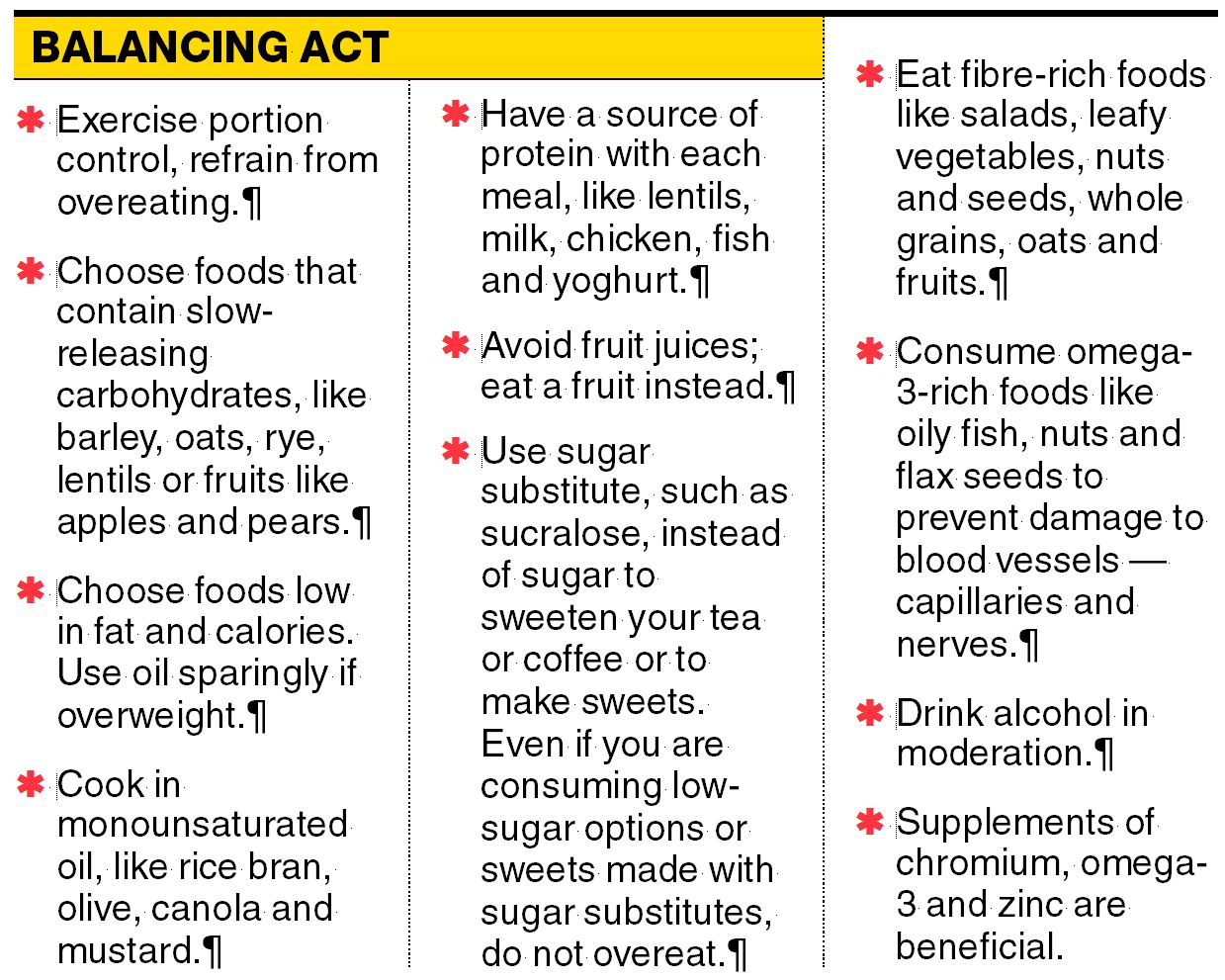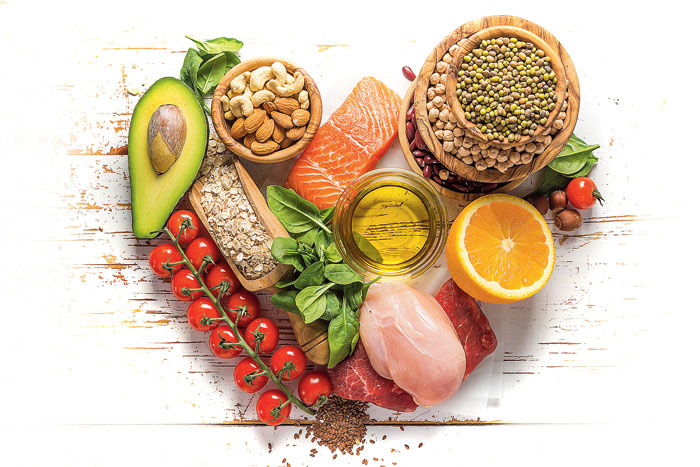I’ve got sugar.” It’s something we hear all the time in India. No wonder we have 69.2 million diabetics living in India (as per 2015 data from WHO). The numbers are predicted to escalate to 98 million by 2030. The word sugar and diabetes are used interchangeably. We all have sugar in our blood, but it is when we have excess sugar (glucose) in our bloodstream, and our ability to maintain it under normal limits is reduced, it is known as diabetes mellitus.
Uncontrolled raised blood sugar leads to many complications, which develop gradually. These complications could be disabling or even life-threatening such as cardiovascular diseases, nerve damage (neuropathy), kidney damage (nephropathy), eye damage and foot damage.
But the good news is that we don’t have to worry about these serious complications if we keep sugar within normal limits through proper medication, diet and physical activities. It’s all about managing the disease, the way many celebrities do, like Wasim Akram, Nick Jonas, Halle Berry and Fawad Khan. “I have high blood sugar and Type 2 diabetes is not going to kill me. But I just have to eat right, and exercise, and lose weight, and watch what I eat, and I will be fine for the rest of my life,” Tom Hanks has said.
Diet dilemma
The biggest worry for most diabetics is ‘What can I eat?’ There is no magical, universal nutritional formula for diabetics because everyone responds differently to various foods and diets. Your eating plan will be based on your treatment goals. For example, the dietary prescription for a diabetic with obesity will be different from a diabetic who has normal weight.
Simply reducing calories can also help an overweight diabetic to control sugar. Low GI, Mediterranean and ketogenic are a few eating styles that have shown to be beneficial for diabetics. Proponents of keto diet suggest that a high-fat, very low-carb diet can even reverse diabetes and is particularly favourable for prediabetics suffering from insulin resistance. But one must understand that there is no diet which can cure diabetes or act as a substitute for medication. Diet is an important component of holistic treatment of diabetes and not a replacement for medication. So please do not stop your medications, unless your endocrinologist asks you to.
Sugar concerns
Some people assume that consumption of sugar itself causes the disease. This is a myth. Just because you suffer from diabetes doesn’t warrant that you have to remove sugar from your diet completely. There’s no problem including it occasionally. Sugary drinks and sugar candies can come in handy to treat a hypo, when your blood sugar levels get too low. The WHO calls for reduction of free sugar intake to less than five per cent of total energy intake. Free sugars are table sugar, castor sugar, pure fruit juice, high fructose corn syrup, honey, agave and maple syrup. To check whether a product is high in free sugar, read the food label.
Understanding carbohydrates
Carbohydrates are one of the three main macronutrients, besides protein and fat. Macronutrients are essential for proper body functioning and the body requires large amounts of them. All macronutrients must be obtained through diet; the body cannot produce macronutrients on its own. Carbs are the body’s main source of energy. There are three main types of carbohydrates.
Sugar: It’s a simple carbohydrate and can be naturally occurring, such as those in milk and fruits or as added sugar.
Starches: They are complex carbohydrates and include starchy vegetables (like peas, corn, potatoes, dried beans, lentils) and grains (like oats, barley, rice and wheat).
Fibre: Found mainly in plant foods such as fruits and vegetables, beans and legumes, whole grains and nuts. Eating foods high in fibre can lower blood sugar.
But one thing is for sure, that diabetics cannot process carbohydrates properly. This is because either diabetics are low on insulin or resistant to its effects. Carbohydrates can have a major impact on blood sugar. So one needs to know and understand that all carbs are not equal and have different effects on blood sugar. We need to differentiate between good and bad carbohydrates.
Good carbs are complex carbohydrates, like wholegrains, vegetables, beans or lentils. These foods are digested slowly and their potential energy is released gradually, hindering sudden spikes in blood sugar, which is harmful to the body. Moreover, they contain less digestible type of carbohydrate known as fibre, which not only reduces the release of sugar in the bloodstream but is also good for digestion.
Bad carbohydrates are simple carbohydrates such as refined foods like maida, polished rice, white bread and concentrated forms of sugar, such as table sugar, confectionery, sweetmeats, aerated drinks and sherbets. They are fast releasing, causing a rapid increase in blood sugar levels. Most of them are also devoid of vitamins and minerals. They can be used sparingly and can be reserved for special occasions. Watch your portion size when you consume them.
Make these swaps
- Choose basmati or brown rice over white rice. You can also try quinoa or bulgur wheat for a change.
- Use new potatoes instead of old ones; you can also try sweet potatoes for variety.
- Instead of white and brown bread, choose multigrain or rye bread.
- Try oats porridge or wholegrain muesli over cornflakes.
Is fruit forbidden?
No, fruits are a healthy option for diabetics. Fruits contain a simple sugar called fructose, which needs no digesting and can therefore enter the bloodstream quickly. But the body cannot use fructose as it is, as our body cells run exclusively on glucose. Since fructose has to be first converted by the body into glucose along with high fibre content of fruits, it does not let the blood sugar spike. Ideally, one should consume fruits of different colours for maximum antioxidants. But one should not eat large quantities of fruits and avoid ripe fruits. Low sugar and low GI fruits include guava, plums, black jamun, peaches, kiwi, berries, apples and oranges.
Hena Nafis is a consultant nutritionist and the owner of nutrition and lifestyle clinic Nutrience, and the health cafe, Eat Good Food

The Telegraph










